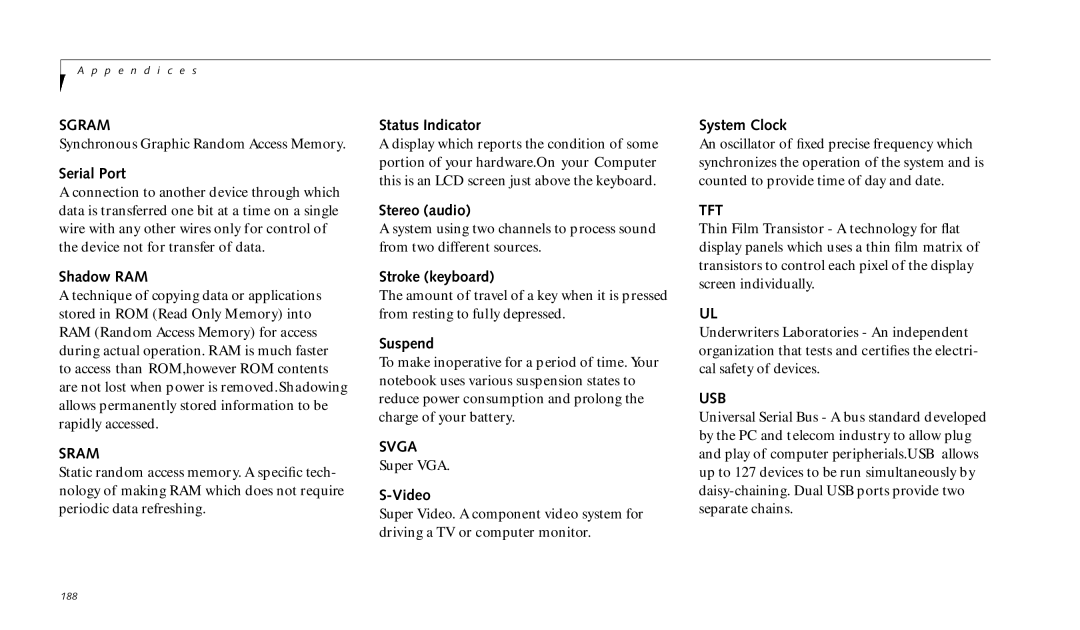A p p e n d i c e s
SGRAM
Synchronous Graphic Random Access Memory.
Serial Port
A connection to another device through which data is transferred one bit at a time on a single wire with any other wires only for control of the device not for transfer of data.
Shadow RAM
A technique of copying data or applications stored in ROM (Read Only Memory) into RAM (Random Access Memory) for access during actual operation. RAM is much faster to access than ROM,however ROM contents are not lost when power is removed.Shadowing allows permanently stored information to be rapidly accessed.
SRAM
Static random access memory. A specific tech- nology of making RAM which does not require periodic data refreshing.
Status Indicator
A display which reports the condition of some portion of your hardware.On your Computer this is an LCD screen just above the keyboard.
Stereo (audio)
A system using two channels to process sound from two different sources.
Stroke (keyboard)
The amount of travel of a key when it is pressed from resting to fully depressed.
Suspend
To make inoperative for a period of time. Your notebook uses various suspension states to reduce power consumption and prolong the charge of your battery.
SVGA
Super VGA.
S-Video
Super Video. A component video system for driving a TV or computer monitor.
System Clock
An oscillator of fixed precise frequency which synchronizes the operation of the system and is counted to provide time of day and date.
TFT
Thin Film Transistor - A technology for flat display panels which uses a thin film matrix of transistors to control each pixel of the display screen individually.
UL
Underwriters Laboratories - An independent organization that tests and certifies the electri- cal safety of devices.
USB
Universal Serial Bus - A bus standard developed by the PC and telecom industry to allow plug and play of computer peripherials.USB allows up to 127 devices to be run simultaneously by
188
